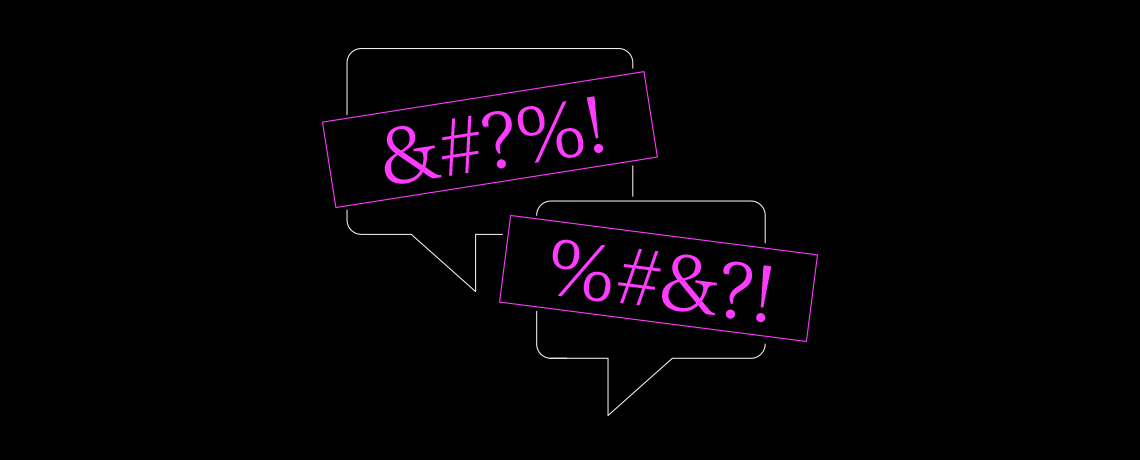There’s a good chance that if you’ve spent any time online, you’ve experienced what researchers call “the online disinhibition effect.”
The online disinhibition effect refers to the lack of restraint that can occur when we communicate online – that is, how we lose some of the inhibitions we might display in other social settings.
What does this look like? It could be disclosing personal information that we wouldn’t normally discuss in person, or just saying things in online conversations that would feel inappropriate, unusual, or out-of-character if those on the other side of the conversation knew us personally.
But it isn’t all bad news. Online disinhibition can also lead to free, open, and honest conversations that wouldn’t occur in person.
The question is – if the online inhibition influences how we express ourselves online, how can we use this knowledge to enable healthy, civil conversations?
Online disinhibition can alter the way we express ourselves online
First, let’s understand this phenomenon a little bit better. There are a few factors that play into online disinhibition.
First of them is anonymity. In many online settings, we’re unidentifiable. Our personal details, like where we work, where we live, our names and families, are concealed from others. We don’t need to worry about how we look or how we sound when we’re interacting online because what we say can’t come back to haunt us.
Another factor, since we can’t see the people we’re talking to, is that online conversations lack negative social cues like a frown or a bored expression. As a result, we share more verbally (or, typed) online than we would be inclined to share in person. We also have greater control of what we share and how we share it – we can edit a comment or update a profile with just a few clicks.
Finally, the online world is a great equalizer when it comes to personal status. Every interaction with another person feels more like a peer relationship – and there is a minimization of authority. That means we not only speak more freely on topics that we might not address in person, we’re also unafraid to speak to more openly with more people.
The psychology behind internet trolls explained by online disinhibition
All of these factors can unburden us of the social anxieties that normally occur in-person, enabling us to speak more freely and with fewer inhibitions online. When you combine the various elements of disinhibition – oversharing and a flattening of authority – misbehavior is enabled, and trolls are born.
Trolling behavior can range from posting abusive or threatening messages to incessantly picking fights and hurling insults at strangers online. The online disinhibition effect enables trolls to hide behind a cloak of anonymity, so they feel emboldened to say and do things online that they wouldn’t in person.
According to internet psychologist Graham Jones, “In the real world people subconsciously monitor the behaviour of others around them and adapt their own behaviour accordingly… Online we do not have such feedback mechanisms.”
But if the online disinhibition effect explains the psychology behind trolling, then why isn’t everyone a troll? How do we encourage people to express themselves freely and enable healthy environments where those conversations can flourish?
Moderation is key for encouraging healthy online conversations
The communities where online conversations happen play a huge role in the health of the conversations that happen there. The sociological concept of the Broken Windows Theory states that an environment with visible signs of disorder signals that no one cares, leading to more disorder and chaos.
In online environments, it works the same way: if trolling behavior goes unchecked, more trolling is bound to happen. That’s why online communities without proper moderation can become a breeding ground for trolls and toxic conversations. So, what’s the solution?
Well, the first step is Moderation that enables free speech and encourages civil discussions. Encouraging good behavior by incentivizing positive, thoughtful contributions – and having the ability to identify and de-incentivize toxic behavior – paves the way for quality online conversations.
Looking ahead: online disinhibition and your community
So the contradiction at the heart of the Online Disinhibition Effect is in full view: it flattens hierarchy and enables us to speak more freely and openly online than we would in person. But that same anonymity can also fuel abusive behavior by a minority of trolls that steer the community into toxic territory.
For those managing online communities, a delicate balance must be struck. Enabling open conversations while discouraging toxicity can be challenging – but with quality moderation that enables free speech online, it’s possible.
Learn how OpenWeb’s technology encourages positive behavior online.


